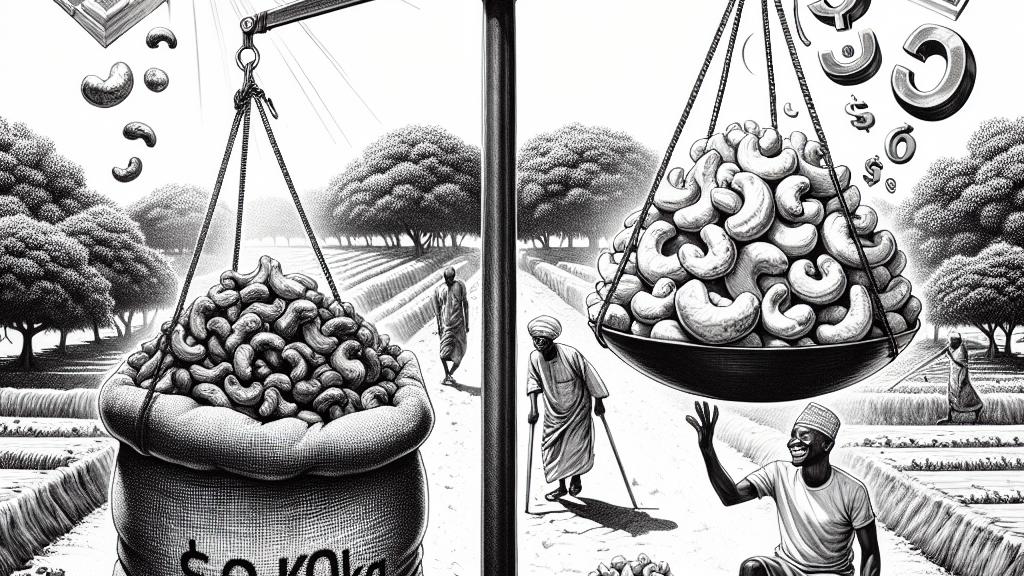Understanding Ghana's Cashew Industry: Challenges and Opportunities
Overview
- Ghana ranks as the third-largest exporter of unprocessed cashew nuts globally, significantly impacting the international market.
- Local farmers face daunting challenges, including low prices and inconsistent supply chains, which threaten their livelihoods and inhibit growth.
- A strong movement is underway to boost domestic processing capabilities, potentially transforming the industry and enhancing worker incomes.

Ghana's Cashew Farming Landscape
Let's take a closer look at Ghana's vibrant cashew farming scene. This West African nation stands tall as the third-largest global exporter of unprocessed cashew nuts, trailing only behind Ivory Coast and Cambodia. With approximately 300,000 farmers working diligently, the industry is vital to many livelihoods. For instance, Nashiru Seydou, a determined farmer from the northeast, reflects the struggles faced by countless others. Despite his hard work under the blazing sun, he earns merely $50 for a sizable 100kg sack of unshelled cashews. In stark contrast, when these raw nuts reach the retailers, the prices skyrocket, often ranging from $20,000 to $40,000 per tonne! This shocking disparity doesn't just reveal the farmers' plight; it underscores a critical need for change and growth within the industry.
The Processing Challenge
Now, consider the processing challenges that loom large over Ghana's cashew market. Each year, Ghana produces an impressive 180,000 tonnes of cashews, yet an alarming 80% is exported in its raw, unshelled state. This export model denies local farmers and the nation substantial profits. Enter visionary entrepreneurs like Mildred Akotia, the founder of Akwaaba Fine Foods, who are determined to shift this narrative. However, they face significant hurdles—specifically, the exorbitant interest rates on loans, which can reach up to 30%. As a result, just a fraction—only 25 tonnes—of cashews are processed locally. To add to the irony, many of the nuts are roasted in foreign lands before being shipped back to Ghana, competing with locally produced options! This absurdity is a clear indicator of the urgent need for Ghana to invest in domestic processing capabilities, ensuring that profits stay within the country and enhance the local economy.
Policy and Market Dynamics
Finally, let’s talk about the policy landscape affecting Ghana's cashew industry. Over the years, the government has explored various measures to encourage local processing, such as the controversial 2016 export ban on raw nuts. However, this initiative faced heavy criticism from farmers, ultimately leading to its rapid abandonment. This highlights a fundamental truth: enforcing policies without addressing the underlying economic challenges won't foster real solutions. Experts like Bright Simons argue that Ghanaian entrepreneurs must embrace innovative, scalable business models that cater to the domestic market. Moreover, stimulating interest in cashew consumption among Ghanaians is essential; imagine the economic boost if more people incorporated cashews into their diets! By nurturing local demand, the industry could flourish, securing better futures for farmers and creating a robust, self-sustaining ecosystem that ultimately benefits everyone involved.

Loading...